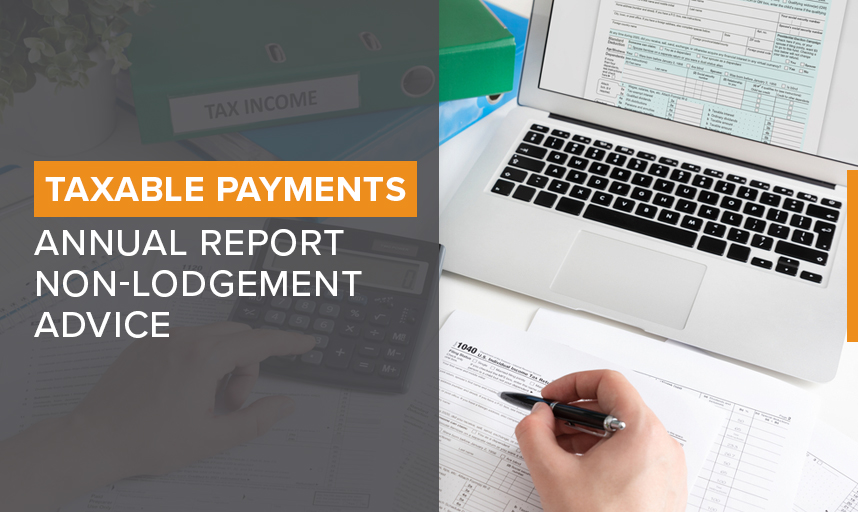Taxable Payments Annual Report Non-Lodgement Advice

Australian business owners need to understand tax obligations and stay compliant with the law. And one such requirement is the Taxable Payments Annual Report (TPAR), which ensures transparency and reduces the occurrence of tax evasion. But if your business is exempted from lodging TPARs, you may be eligible for the Taxable Payments Annual Report Non-Lodgement Advice (TPAR-NLA). So in this blog, we decided to check out the details of TPAR-NLA, its purpose, and a whole lot more! So let’s begin.
What is the Taxable Payments Annual Report?
Simply put forth, the taxable payments annual report is an obligation for businesses that operate in specific industries such as construction, cleaning, courier services, and more. So these businesses need to report details for payments made to contractors and subcontractors to the Australian Taxation Office (ATO). This aspect aims to minimise the under-reporting of income and ensure that contractors meet their tax obligations.
Which Industries Need to Report TPAR?
As explained earlier, TPAR is quite industry-specific. So here businesses that provide the following set of services are required to submit a TPAR report:
- Cleaning services
- Building and construction services
- Courier services
- Information technology (IT) services
- Road freight services
- Security, investigation, or surveillance services
- Mixed services
What Payments Aren’t Subject To TPAR Requirements?
Even though the TPARs typically require businesses to report payments made to contractors and subcontractors, certain payments are not subjected to TPAR requirements. Following are examples of payments that are typically exempt from TPAR reporting:
- Payments to employees: Wages, salaries, and other payments made to employees are not included in TPAR reporting.
- Personal payments: Payments made to individuals for personal services, outside the scope of running a business, are generally not subject to TPAR requirements.
- Payments to contractors that don’t have an Australian Business Number: If the contractor does not provide you ABN, you will have to withhold PAYG contributions and report their pay through the PAYG payment summary (Form NAT3448).
- Payments for private or domestic projects: If the payments are made for private or domestic projects, such as renovating a personal residence, they are typically exempt from TPAR reporting.
- Payments to employees of a separate entity: If a business makes payments to employees of another entity (such as a subcontractor’s employees), these payments are not included in TPAR reporting.
How Can You Lodge TPAR?
- To lodge a TPAR, you first have to prepare it where you require the name, address, and ABN for all contractors you have hired and the amount you have paid them, including GST.
- If you have a myGovID account and Relationship Authorisation Manager, you can head to the ATO’s online portal.
- Every year, the TPAR lodgement is due by 28 August. Businesses can also file a paper TPAR by email with the original completed form.
Benefits of TPAR-NLA Exemption
Claiming the TPAR-NLA exemption offers several advantages to eligible businesses, including:
Reduced reporting obligations: With these exemptions, businesses can save time and effort associated with preparing and lodging TPARs.
Streamlined processes: The TPAR-NLA simplifies compliance for businesses that are not required to report payments made to contractors.
Administrative relief: Businesses can focus more on their core operations and allocate resources more efficiently without the additional burden of TPAR reporting.
Conclusion
The Taxable Payments Annual Report Non-Lodgement Advice is something that offers valuable exemptions for eligible businesses that meet specific criteria. Along with this, it is also essential to stay updated with the latest ATO guidelines and seek professional advice if necessary to ensure accurate reporting and adherence to taxation laws. And for any assistance on TPAR, you can consult KPG Taxation which is all set to offer you expert advice on TPAR.

Focus On Growing Your Business, Leave The Accounting On Us!
- Income Tax : File your taxes & get the best claims & returns.
- Accountancy : Hire expert accountants to manage your transactions.
- Bookkeeping : Let us handle your record books and expense reports.
- Business Advisory : From company set-up to payroll, we handle it all.



